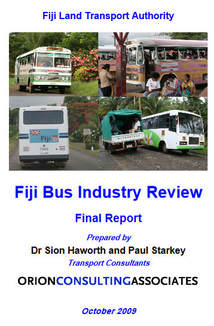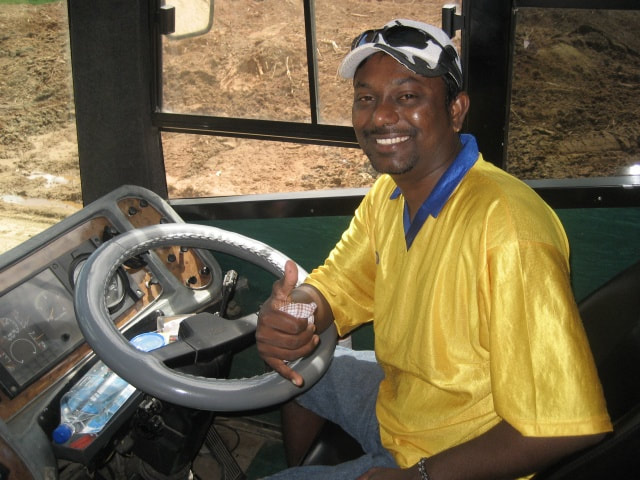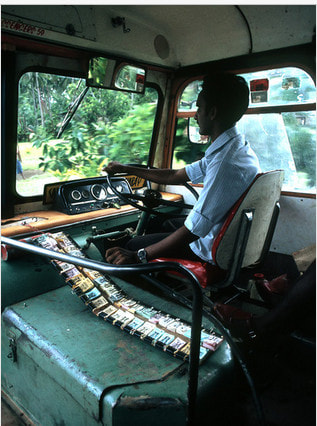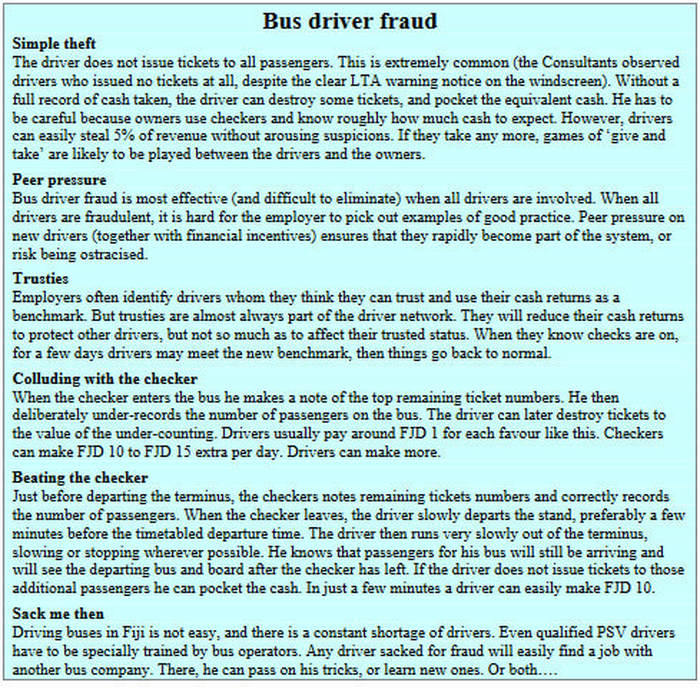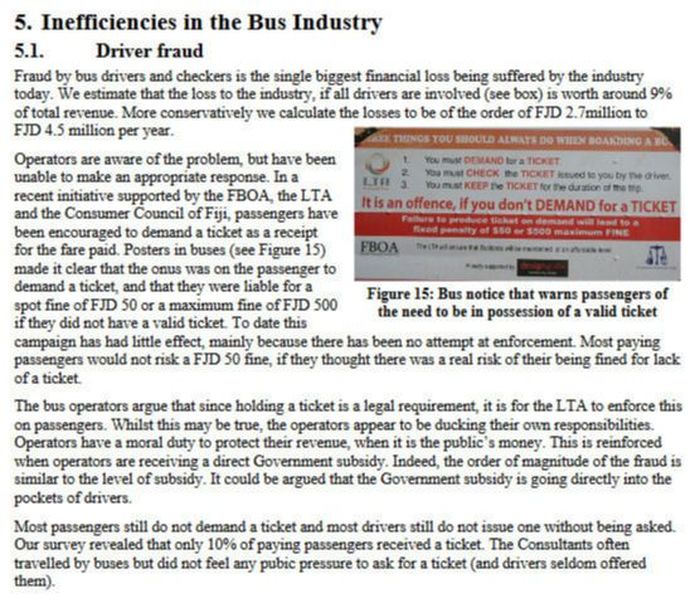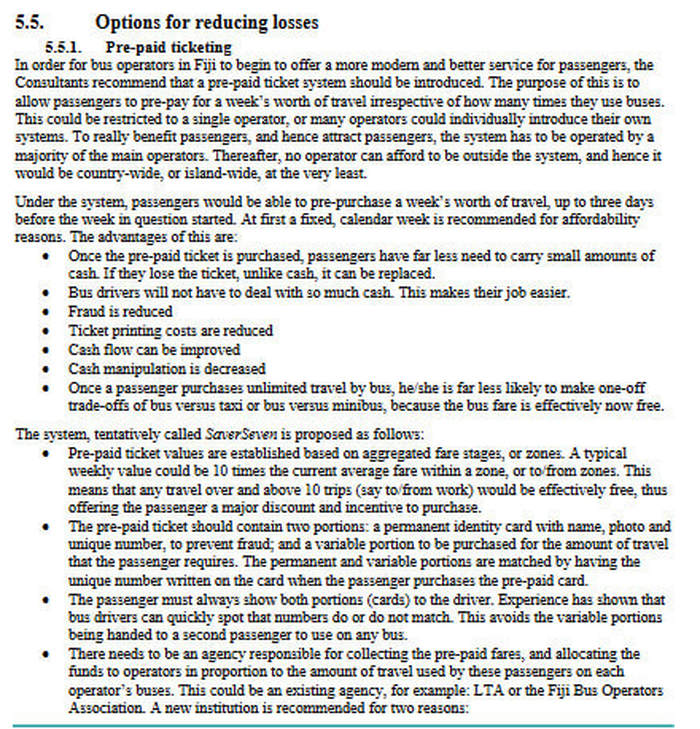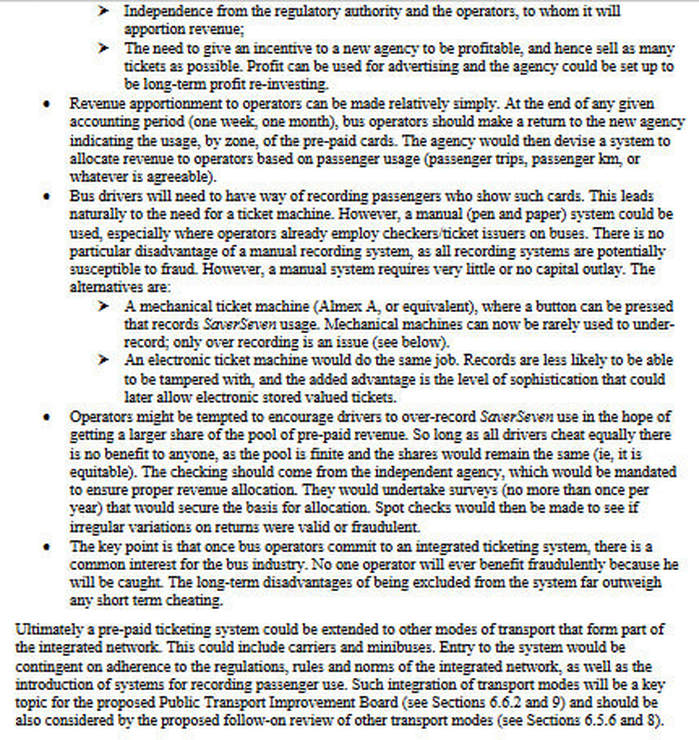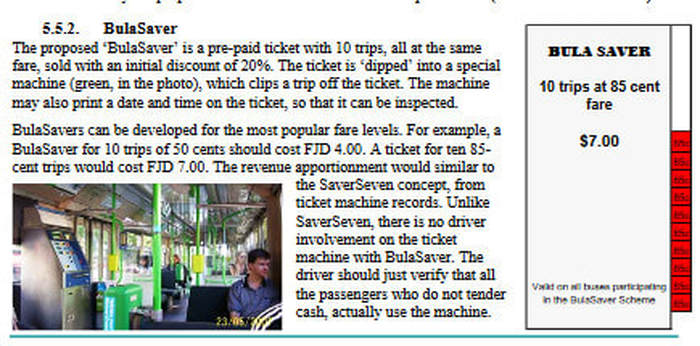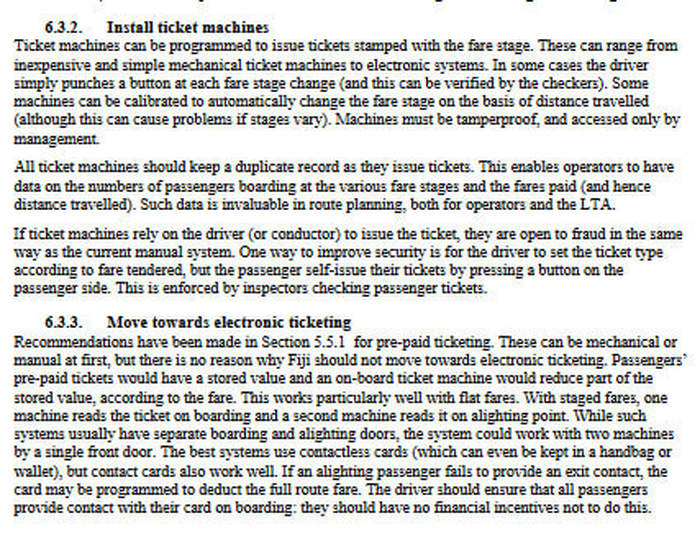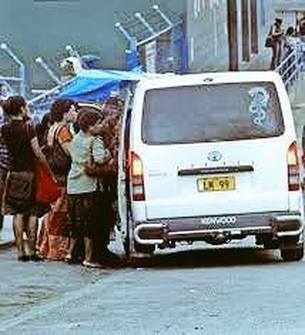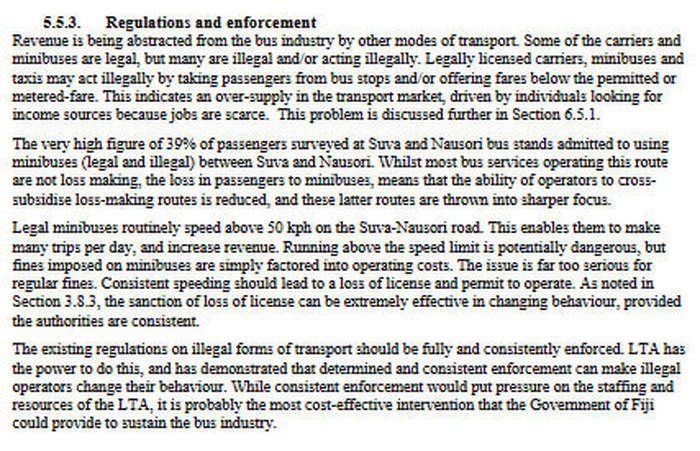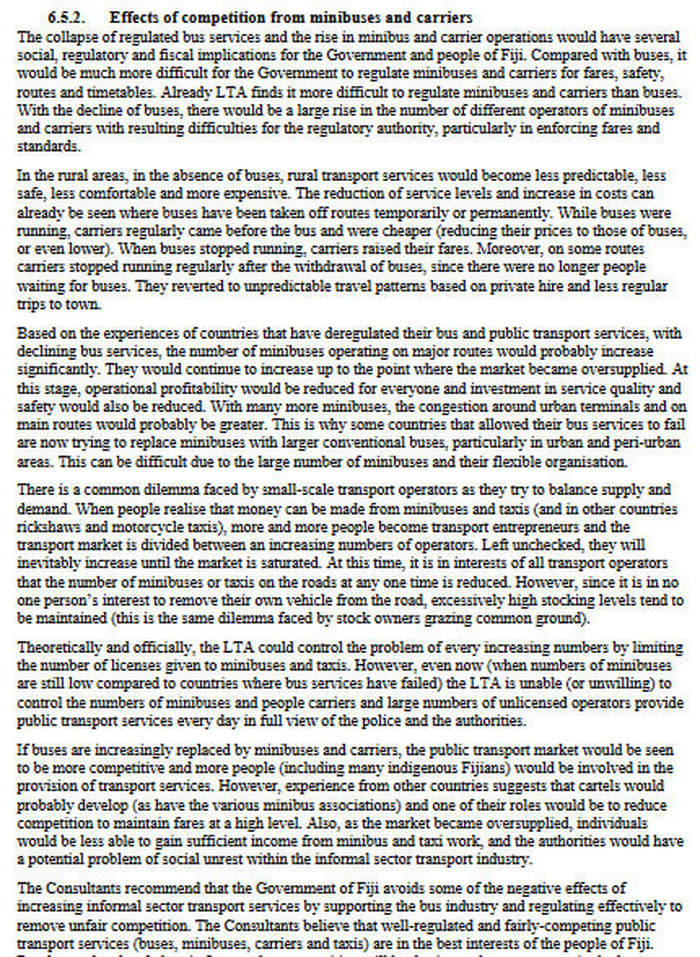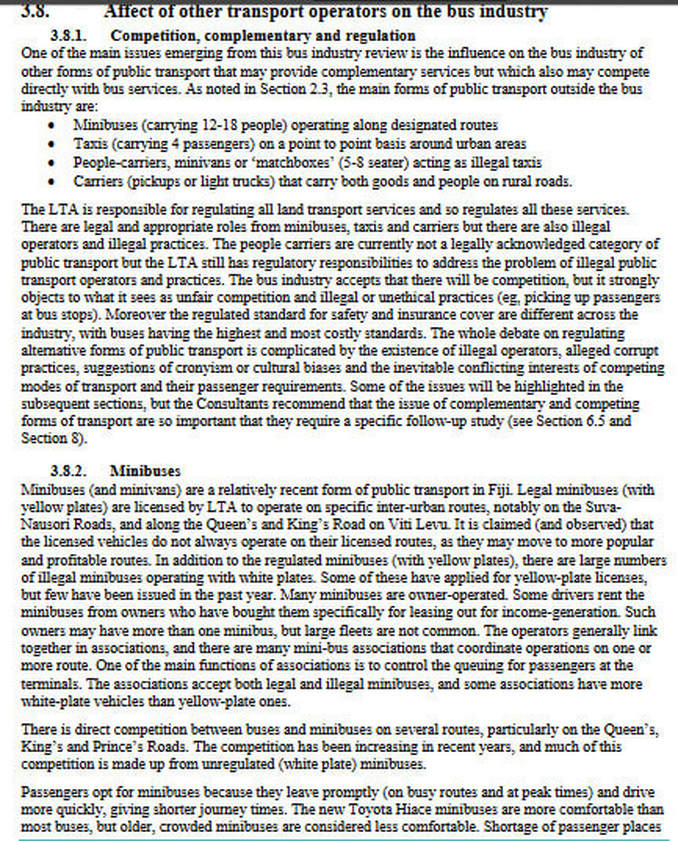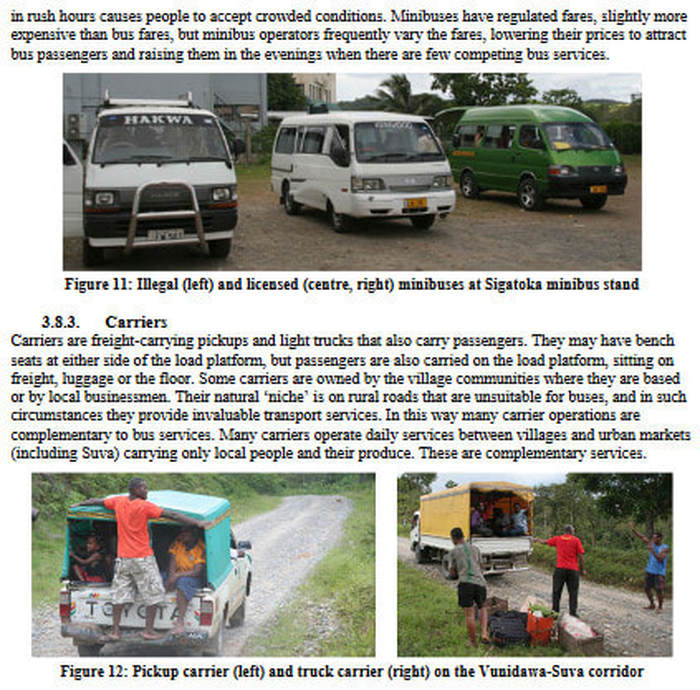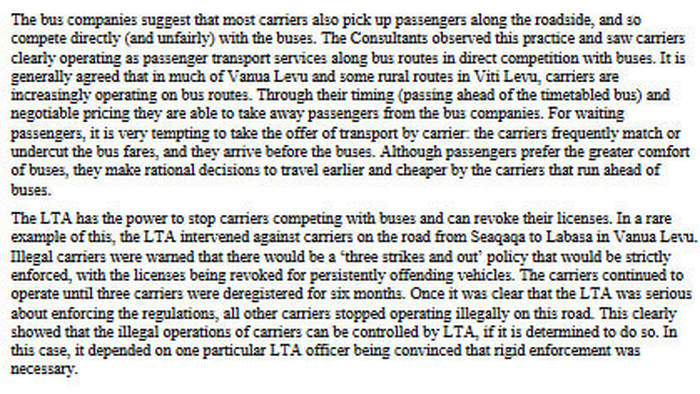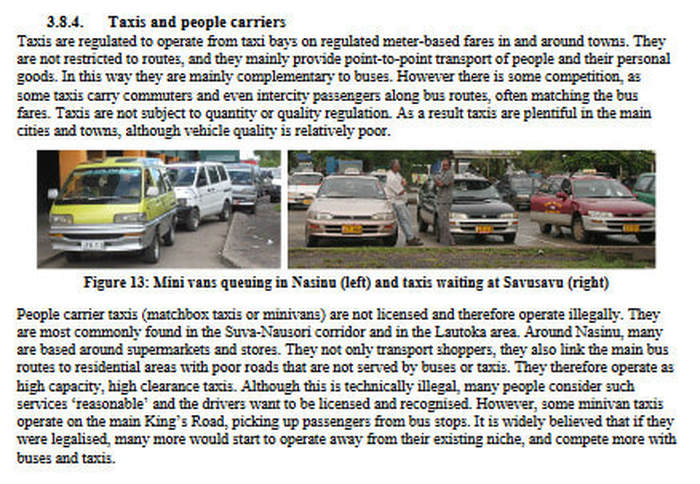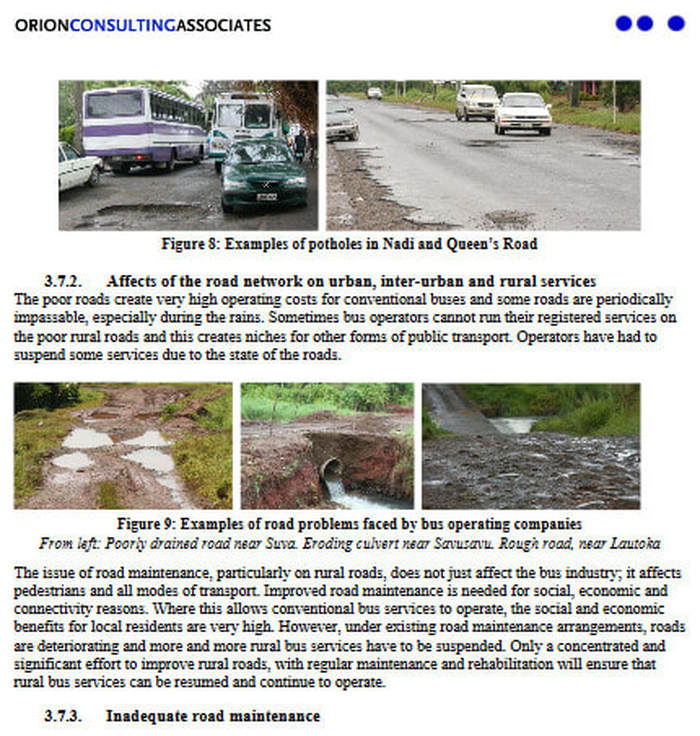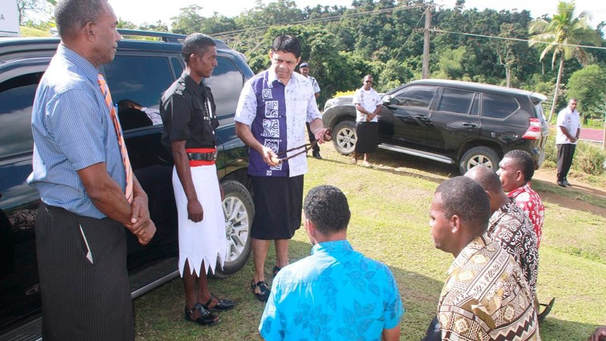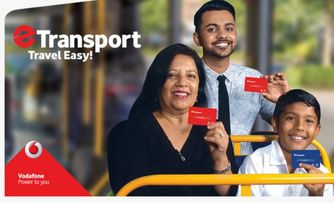So far, the two consultants who reviewed the Fiji Bus Industry and prepared their Report for Fiji Land Transport Authority, are yet to respond to our questions including the chaos their Report has plunged Fiji into - especially the bus passengers and the vilification of the bus drivers
| Executive Summary Introduction The Land Transport Authority (LTA) contracted Orion Consulting Associates BV to undertake a review of the Fiji Bus Industry. Paul Starkey (Team Leader) and Dr Sion Haworth worked in Fiji for four weeks in December 2008 and January 2009. They collaborated with LTA, the Transport Planning Unit (TPU),the Fiji Bus Operators Association (FBOA), the Consumer Council of Fiji (CCF) and other organisations. They consulted with many stakeholders, saw bus operations in Viti Levu and Vanua Levu, undertook a small passenger survey, facilitated a workshop, prepared two draft reports and considered information and comments from several sources. |
The consultants, the bus operators and all institutional stakeholders involved in this study agree that racial issues should not influence the review of the Fiji Bus Industry. However, it would not be correct to totally ignore certain cultural issues and perceptions in Fiji that have historically been related to ethnicity.
Most of the bus owners and drivers are Indo-Fijians and this may influence some people’s perceptions (eg, there may be an unsympathetic attitude to the bus industry in some media) and some decision making (eg, overnight location of buses and drivers). Many (but not all) of the competing modes of transport, including minibuses, carriers, ‘matchboxes’ and taxis are operated by Indigenous Fijians. This may influence perceptions, policy and enforcement, as there may be a desire to support the economic enterprises of Indigenous Fijians.
One of the biggest issues facing the Fiji Bus Industry is the question of fair competition between different transport services linked to appropriate regulation and reliable enforcement. Unfortunately, on many routes the owners and operators of the competing services (buses, carriers, and minibuses) are of different cultural (racial) backgrounds. This might influence transport operations and the various processes of regulation and enforcement. However, the Consultants will address transport issues in this report from an objective professional perspective without racial bias.
"Fraud by bus drivers and checkers is the single biggest financial loss being suffered by the industry today. We estimate that the loss to the industry, if all drivers are involved (see box) is worth around 9% of total revenue. More conservatively we calculate the losses to be of the order of FJD 2.7million to FJD 4.5 million per year" - The Final Report
Khaiyum says once the E-Ticketing system has worked out well in the buses, it will also be moved on to the mini-buses, taxis and ferries that travel between the maritime zones. He is basically taking the recommendations of the the two consultants:
To be continued:
"Many (but not all) of the competing modes of transport, including minibuses, carriers, ‘matchboxes’ and taxis are operated by Indigenous Fijians. This may influence perceptions, policy and enforcement, as there may be a desire to support the economic enterprises of Indigenous Fijians. One of the biggest issues facing the Fiji Bus Industry is the question of fair competition between different transport services linked to appropriate regulation and reliable enforcement. Unfortunately, on many routes the owners and operators of the competing services (buses, carriers, and minibuses) are of different cultural (racial) backgrounds. This might influence transport operations and the various processes of regulation and enforcement. However, the Consultants will address transport issues in this report from an objective professional perspective without racial bias." The Final Report on Fiji Bus Operators
| Cases of alleged sabotage and some companies left it too late to install e-ticketing machines - AG | A FIRST: No one has ever seen this |

